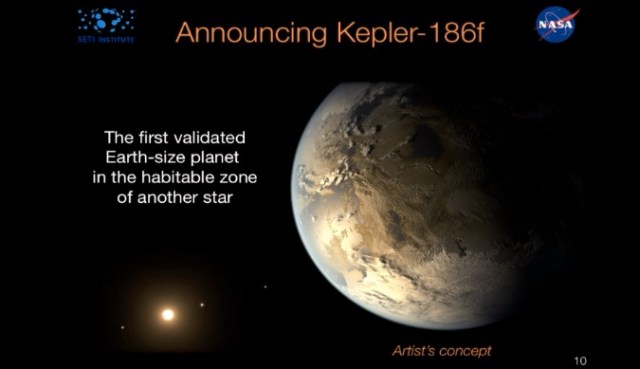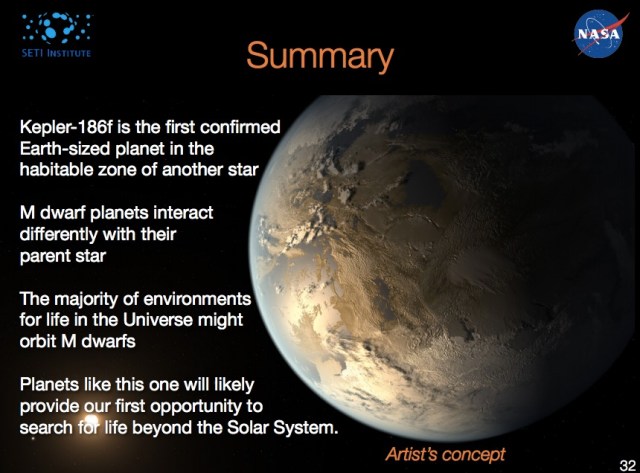Meet Kepler-186f, the First Validated Earth-Sized Planet in the Habitable Zone of a Red Dwarf
This was Kepler's big announcement, and it's pretty big.

We now know what NASA’s big Kepler announcement is. It’s still going on, so we’ll be updating this post. What we know now is that this is the first validated Earth-sized planet in the habitable zone of a star other than our Sun. That’s a big deal.
The “Habitable Zone” of a star is the distance a body can orbit and have liquid water without being too hot or too cold. Kepler has found many planets in the habitable zone of other stars, but so far they’ve been too big or too small to qualify as “Earth-sized.” Kepler’s also found other Earth-sized planets, but they’ve been out of the habitable zone.
Kepler-20e for example, is Earth-sized, but too close to its star. Kepler-22b is in the habitable zone of its star, but it’s much larger than Earth. Kepler-186f is the first time we’ve found an exoplanet that fits into the middle of the Venn diagram between the habitable zone and Earth-sized planets.
Kepler-186f is only 10% larger than Earth, and near a much cooler star. The scientists on the announcement presentation say it’s more accurate to call it “Earth’s Cousin” than “Earth’s Twin.”
The m-dwarf star Kepler-186f orbits gives off redder light than our Sun, so even if it is habitable and we could somehow reach it, Superman would be powerless there.
Plants, however, may be able to perform photosynthesis on Kepler-186f, which gives a lot of hope that live if possible on this new world.

(via NASA, images via NASA)
- Here is our post ahead of this exciting announcement
- This announcement was rumored at the Search for Life Beyond the Solar System Conference
- NASA announced 715 newly confirmed planets just two months ago
Have a tip we should know? [email protected]